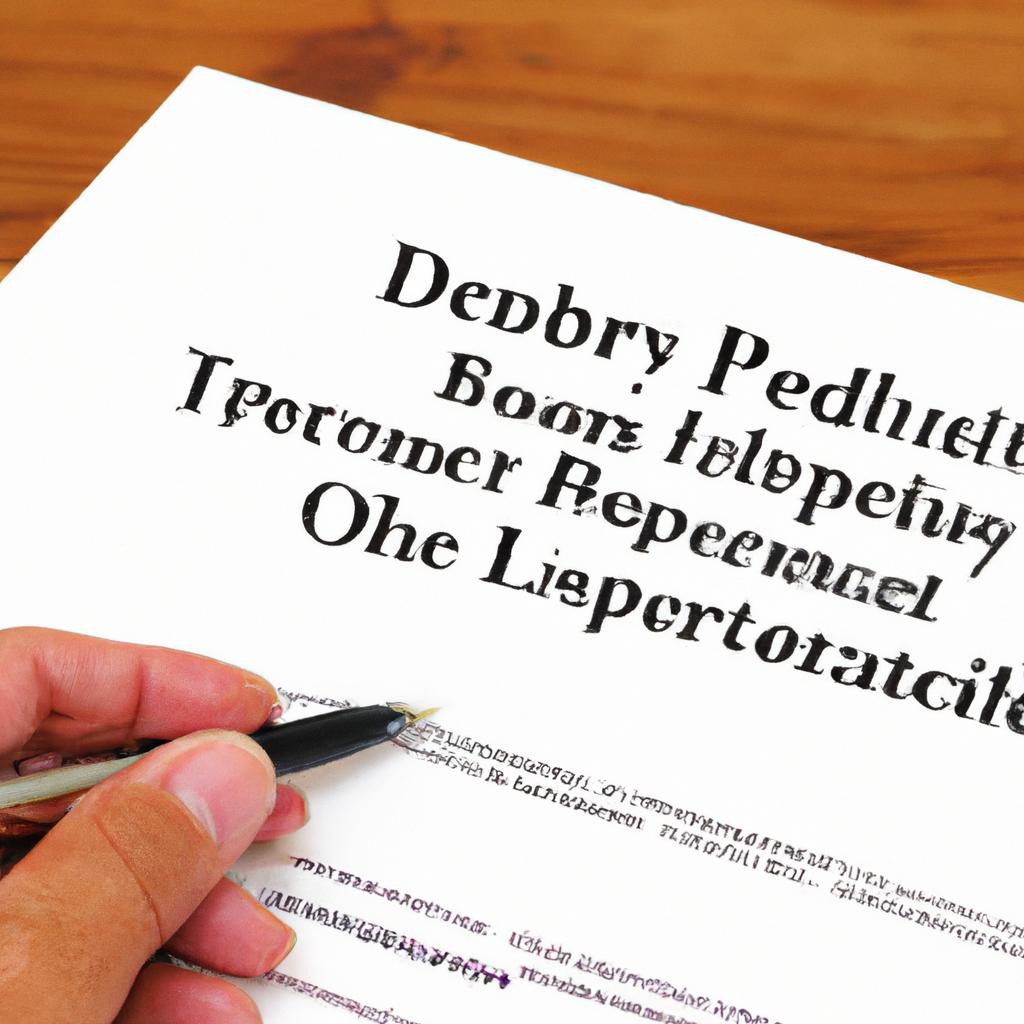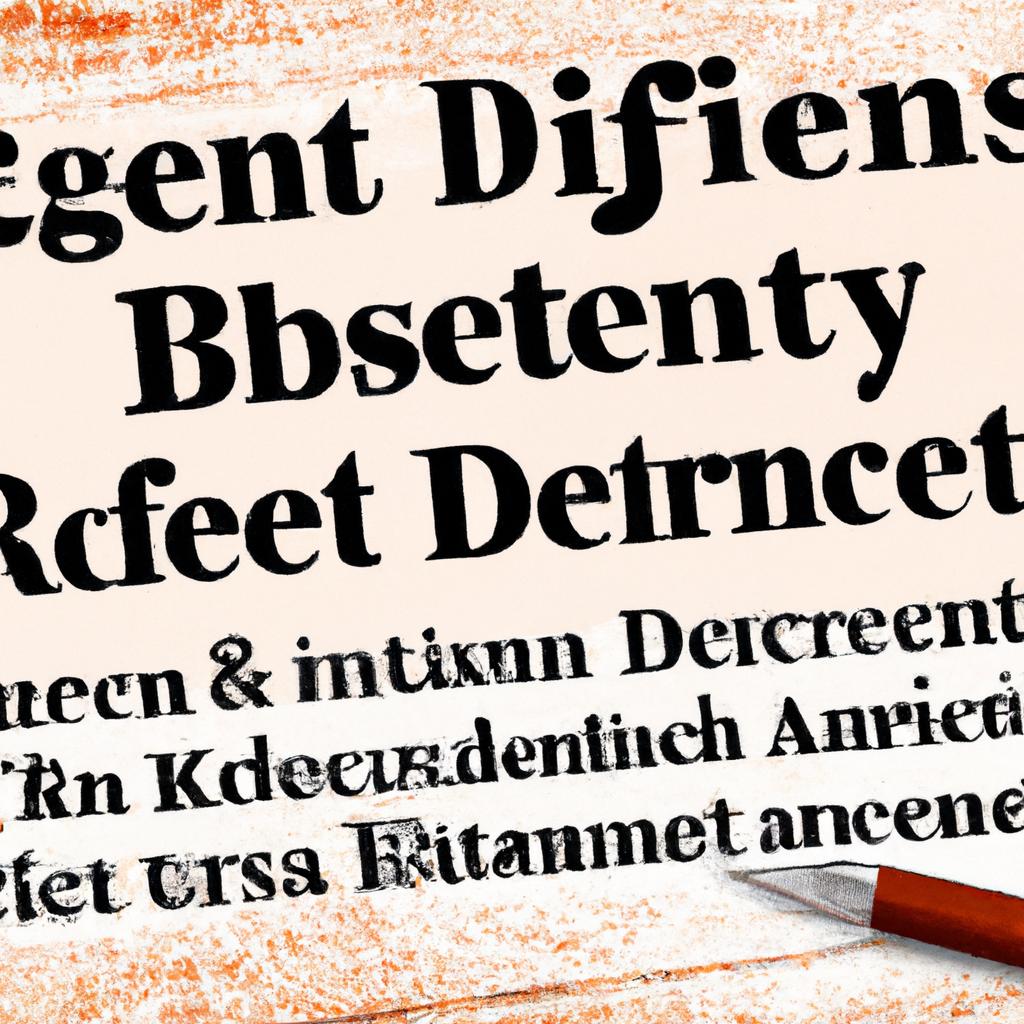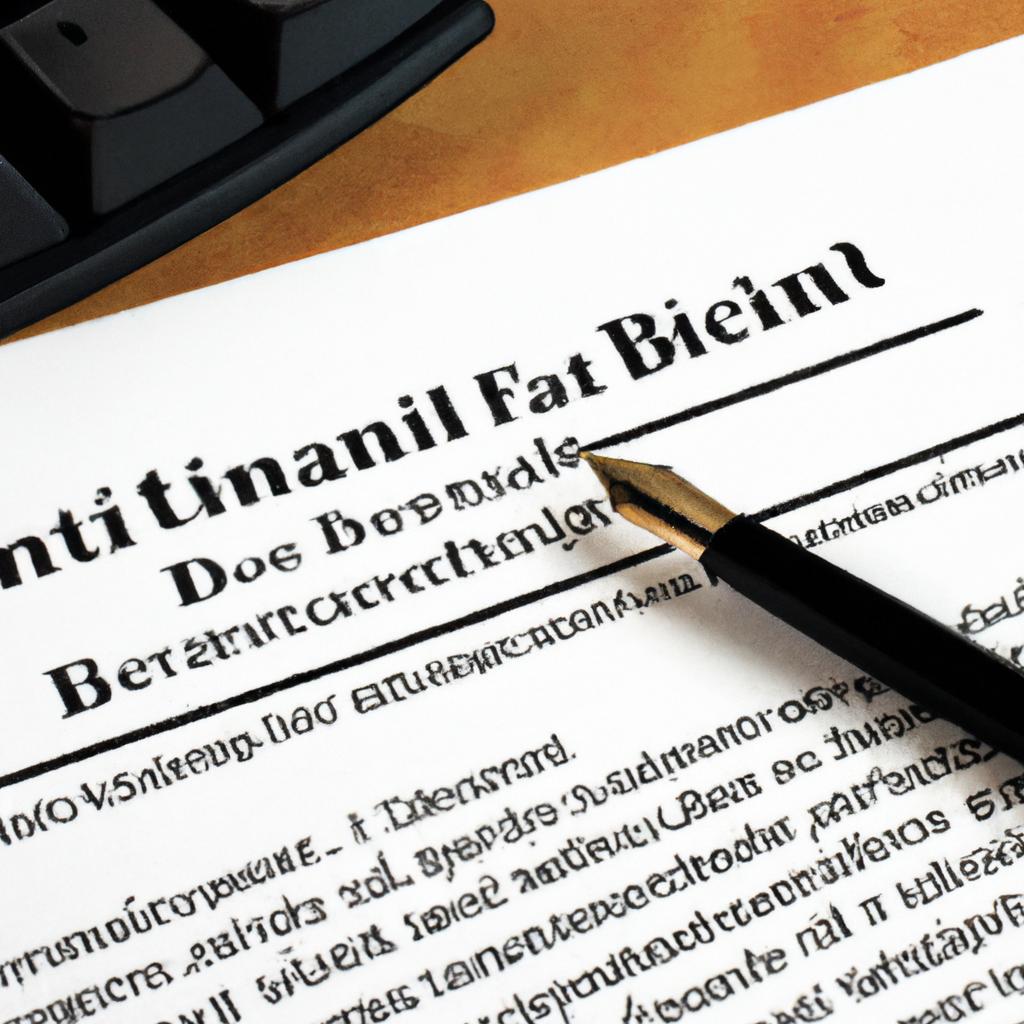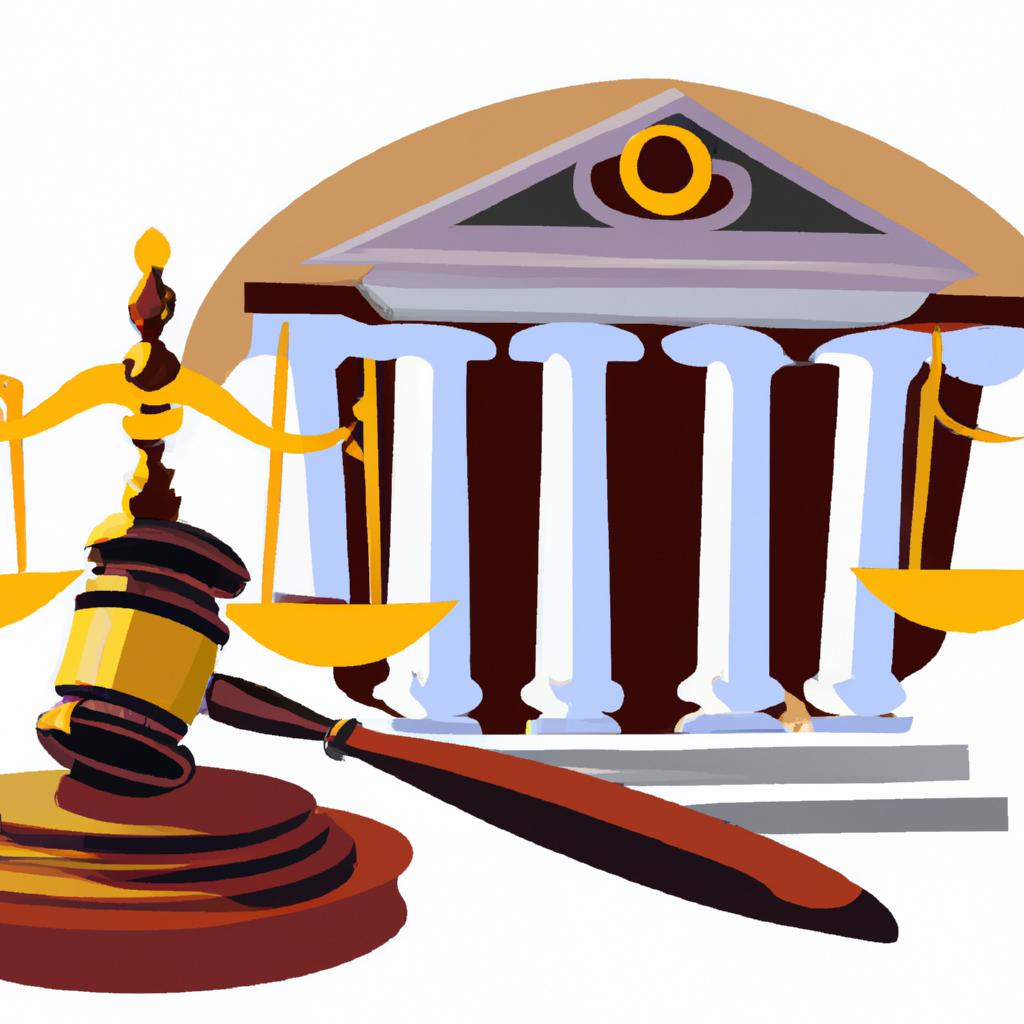In the realm of estate planning, the beneficiary deed stands as a powerful tool for ensuring the seamless transfer of real property upon the owner’s passing. As experienced legal practitioners at Morgan Legal Group in New York City, we understand the importance of clarity and foresight in matters of probate and inheritance. In this article, we dive deep into the intricacies of beneficiary deeds, shedding light on what they are, how they work, and why they are a valuable component of comprehensive estate planning. Join us as we unravel the mysteries of this essential tool and equip you with the knowledge needed to make informed decisions for the future.
Understanding the Purpose of a Beneficiary Deed
A beneficiary deed is a legal document that allows a property owner to transfer the title of their real estate to a designated beneficiary upon their death. This type of deed ensures that the property will transfer directly to the beneficiary without having to go through the probate process, saving time and money for both the property owner and the beneficiary.
One of the key purposes of a beneficiary deed is to provide a seamless transfer of property to a loved one after the property owner passes away. By designating a beneficiary in the deed, the property owner can ensure that their wishes are carried out without the need for court intervention. This can be especially beneficial for individuals who want to avoid the time-consuming and costly probate process.

Key Features and Benefits of Utilizing a Beneficiary Deed
When considering estate planning options, utilizing a beneficiary deed can offer unique advantages for individuals seeking to transfer real property upon their passing. One key feature of a beneficiary deed is that it allows for the seamless transfer of real estate assets outside of the probate process, which can save time and money for your heirs. By designating a specific beneficiary on the deed, you can ensure that your property goes directly to the intended individual without the need for court intervention.
Another benefit of utilizing a beneficiary deed is the flexibility it provides in estate planning. Unlike a traditional Will, which can be subject to challenges and lengthy court proceedings, a beneficiary deed allows you to specify exactly who will receive your property upon your death. This can help to avoid disputes among family members and provide clarity in your wishes for the distribution of your assets. Additionally, a beneficiary deed can be easily revoked or amended during your lifetime, giving you control over your estate plan as your circumstances change.

Considerations Before Establishing a Beneficiary Deed
Before establishing a beneficiary deed, it is important to consider a few key factors to ensure that your wishes are carried out effectively. One of the main considerations is to understand what a beneficiary deed actually entails. A beneficiary deed, also known as a transfer-on-death deed, is a legal document that allows you to transfer ownership of real estate to a designated beneficiary upon your death. This can help avoid the probate process and ensure a smoother transfer of assets to your loved ones.
Another important consideration before establishing a beneficiary deed is to carefully choose your beneficiaries. It is crucial to select individuals who you trust to handle the property responsibly and in accordance with your wishes. Additionally, it is important to review and update your beneficiary deed periodically to reflect any changes in your circumstances, such as births, deaths, or changes in relationships. By taking these considerations into account, you can ensure that your beneficiary deed is properly executed and serves its intended purpose.

Expert Recommendations for Drafting a Comprehensive Beneficiary Deed
When it comes to drafting a comprehensive beneficiary deed, there are several expert recommendations that should be followed to ensure that your wishes are carried out effectively. One important recommendation is to clearly identify the property that you wish to transfer upon your death. This can help avoid any confusion or disputes among beneficiaries.
Another key recommendation is to carefully consider who you want to designate as your beneficiaries. It’s important to think about the potential impact that the transfer of property may have on each individual. Additionally, it’s crucial to regularly review and update your beneficiary deed to reflect any changes in your circumstances or wishes. By following these expert recommendations, you can ensure that your beneficiary deed is well-drafted and legally sound.
Q&A
Q: What is a beneficiary deed?
A: A beneficiary deed is a legal document that allows an individual to transfer real estate property to a designated beneficiary upon their death.
Q: How does a beneficiary deed differ from a regular deed?
A: Unlike a regular deed, a beneficiary deed allows the property owner to retain full control and ownership of the property during their lifetime, with the transfer of ownership only occurring upon their death.
Q: What are the benefits of a beneficiary deed?
A: One of the main benefits of a beneficiary deed is that it allows for a seamless transfer of property to a designated beneficiary without the need for probate court involvement. This can save time and money for both the property owner and their heirs.
Q: Who can create a beneficiary deed?
A: In most states, any individual who owns real estate property can create a beneficiary deed to designate a beneficiary to receive the property upon their death.
Q: Can the designated beneficiary be changed after the beneficiary deed is created?
A: Yes, the property owner can change the designated beneficiary at any time before their death by executing a new beneficiary deed or revoking the existing one.
Q: Are there any drawbacks to using a beneficiary deed?
A: While beneficiary deeds can be a convenient estate planning tool, they may not be suitable for every situation. It is important to consult with a legal professional to ensure that a beneficiary deed aligns with your overall estate planning goals.
Final Thoughts
In conclusion, a beneficiary deed is a powerful estate planning tool that allows individuals to transfer real estate to their chosen beneficiary upon their passing. By carefully documenting their wishes in this legal document, individuals can ensure a smooth and efficient transfer of ownership without the need for probate. Whether you are looking to simplify the transfer of your property or provide for your loved ones after you’re gone, a beneficiary deed may be the solution you’ve been searching for. Take the time to explore your options and consult with a legal professional to create a plan that meets your needs and goals. By doing so, you can rest assured that your assets will be handled according to your wishes and provide for those you care about most.
 When it comes to estate planning, one important document that often gets overlooked is the beneficiary deed. This legal document, also known as a transfer-on-death deed, allows an individual to transfer their property to a designated beneficiary upon their death, without the need for probate court. In this article, we will dive into what exactly is a beneficiary deed, its benefits, and some practical tips for using it in your estate planning.
When it comes to estate planning, one important document that often gets overlooked is the beneficiary deed. This legal document, also known as a transfer-on-death deed, allows an individual to transfer their property to a designated beneficiary upon their death, without the need for probate court. In this article, we will dive into what exactly is a beneficiary deed, its benefits, and some practical tips for using it in your estate planning.
What is a Beneficiary Deed?
A beneficiary deed is a legal document that specifies who will inherit your property upon your death. It allows you to transfer your property, whether it’s a home, land, or other real estate, directly to a designated beneficiary without the need for probate court. This means that your beneficiary will receive the property immediately and without any court involvement.
In order to create a beneficiary deed, you must be the current owner of the property and have the legal capacity to make decisions regarding your estate. You must also specify the property that you want to transfer and the details of the designated beneficiary. This document must be signed in the presence of a notary public and recorded in the county where the property is located.
Benefits of a Beneficiary Deed
By now, you may be wondering why you should consider a beneficiary deed in your estate planning. Well, there are several benefits to this legal document that make it a valuable tool for preserving your assets and protecting your loved ones.
1. Avoids Probate Court
One of the main benefits of a beneficiary deed is that it allows you to avoid probate court. Probate is the legal process where a deceased person’s assets and debts are settled and distributed according to their will. This process can often be time-consuming, expensive, and subject to public record.
With a beneficiary deed, your property is directly transferred to your designated beneficiary, bypassing probate altogether. This not only saves time and money but also provides more privacy for your estate.
2. Provides Flexibility
Beneficiary deeds provide flexibility when it comes to estate planning. They can be changed or revoked at any time as long as the property owner is still alive and has the legal capacity to do so. This means that if your circumstances change or you want to add or remove a beneficiary, you can easily do so without the need for a complicated legal process.
3. Offers Protection for Your Beneficiaries
A beneficiary deed also offers protection for your beneficiaries. Without it, your property could potentially be tied up in probate court for months or even years. This could be a burden for your loved ones, who may need the assets to cover expenses or meet financial obligations. With a beneficiary deed, your beneficiaries can receive the property immediately, providing them with much-needed protection and security.
Practical Tips for Using a Beneficiary Deed
Now that you understand the benefits of a beneficiary deed, here are some practical tips for incorporating it into your estate planning.
1. Consult with an Estate Planning Attorney
It’s always a good idea to consult with an estate planning attorney when creating a beneficiary deed. They can provide valuable guidance and ensure that the document is legally binding and compliant with state laws.
2. Discuss Your Wishes with Your Beneficiaries
It’s important to discuss your wishes for your property with your designated beneficiaries. This can help avoid any confusion or disputes in the future and ensure that your wishes are carried out as intended.
3. Keep Your Beneficiary Deed Updated
Life changes and so do your estate planning needs. It’s important to keep your beneficiary deed updated to reflect any changes in your circumstances or beneficiaries. This will ensure that your property is transferred according to your wishes.
In Conclusion
A beneficiary deed is a useful estate planning tool that can provide numerous benefits for you and your loved ones. It allows your property to be transferred directly to your beneficiaries without the need for probate court. By consulting with an attorney and properly updating the deed, you can have peace of mind that your assets will be protected and distributed according to your wishes. So, if you haven’t already, consider incorporating a beneficiary deed into your estate planning to ensure a smooth transfer of your property to your loved ones.


